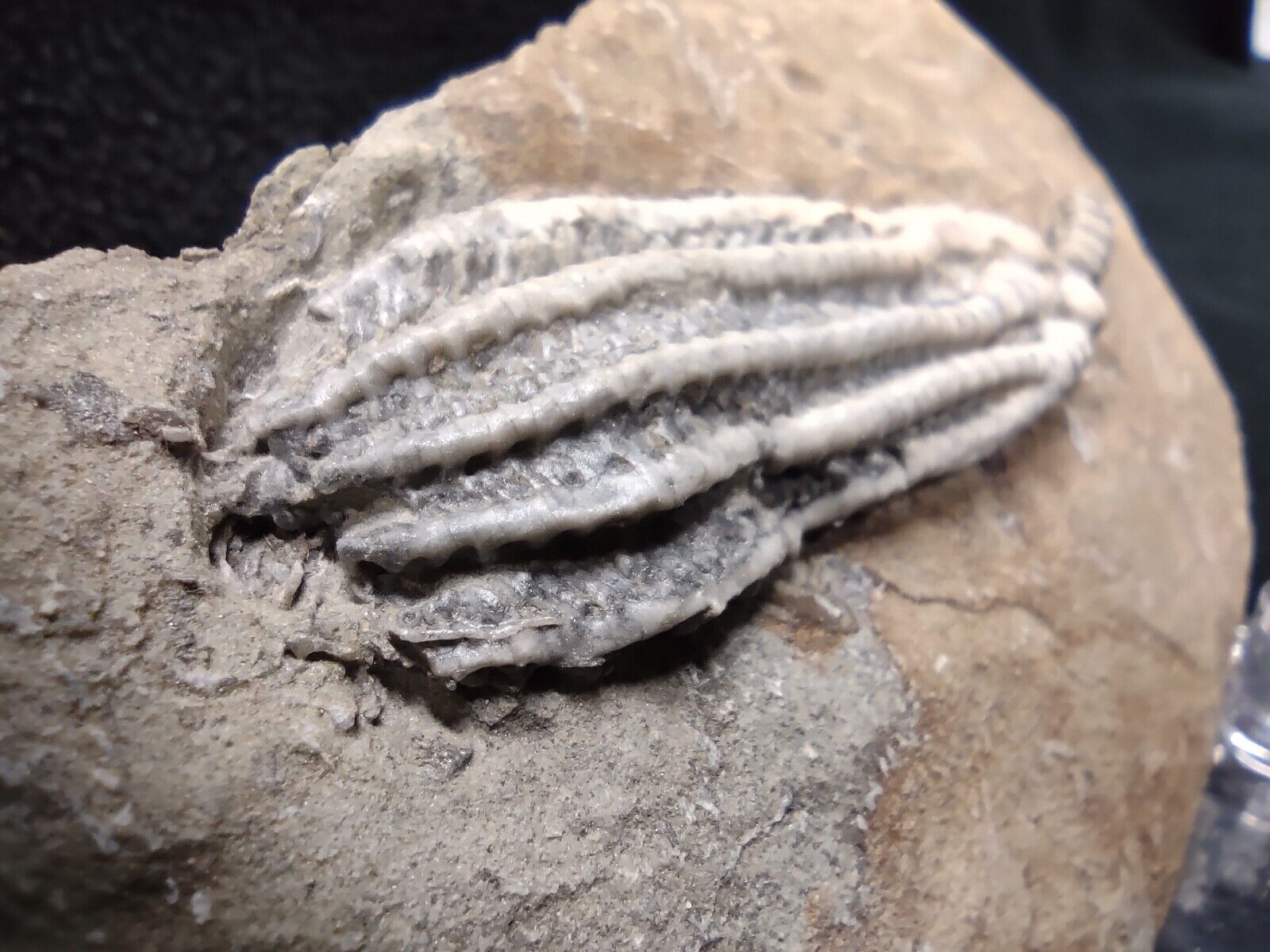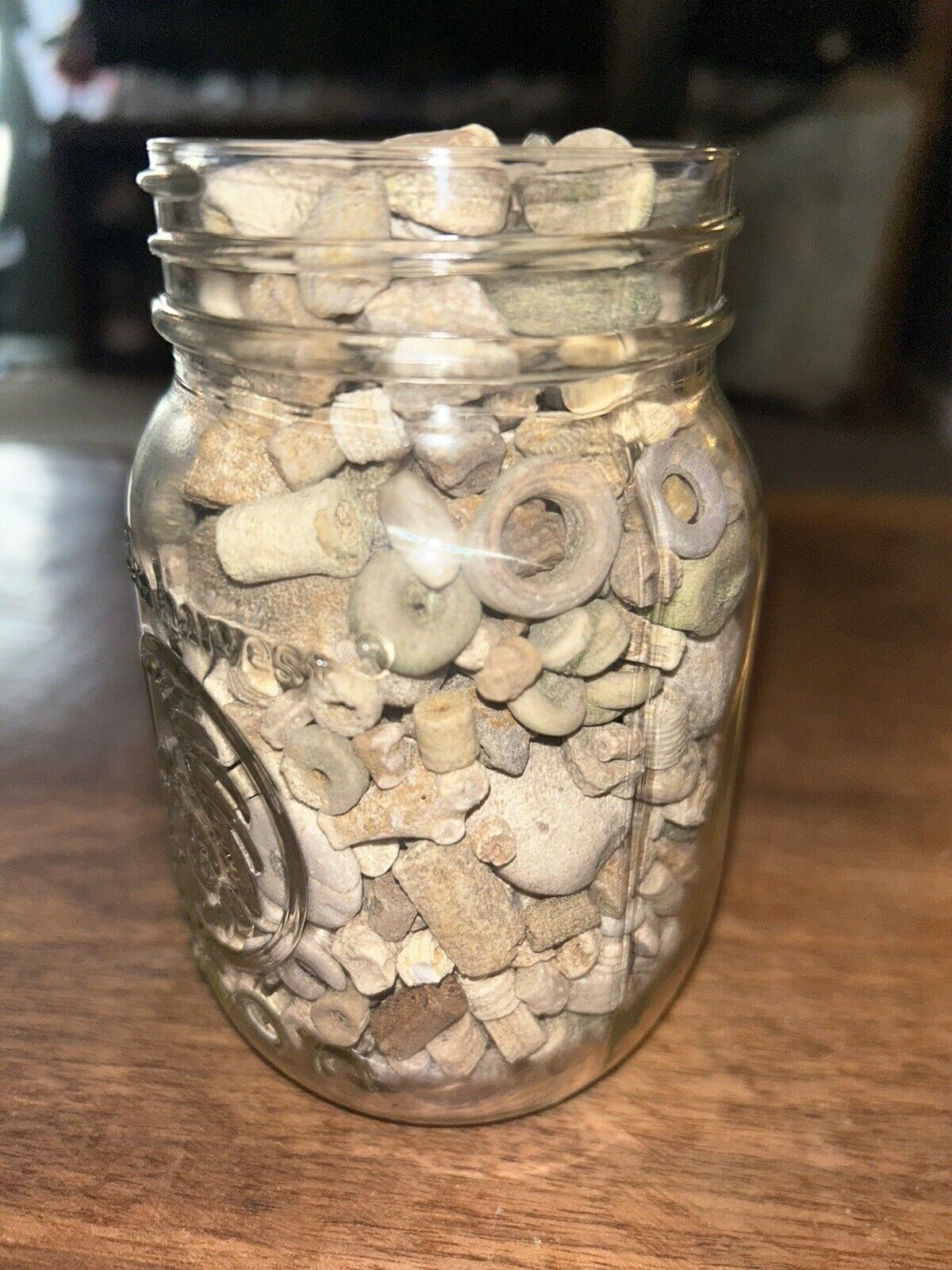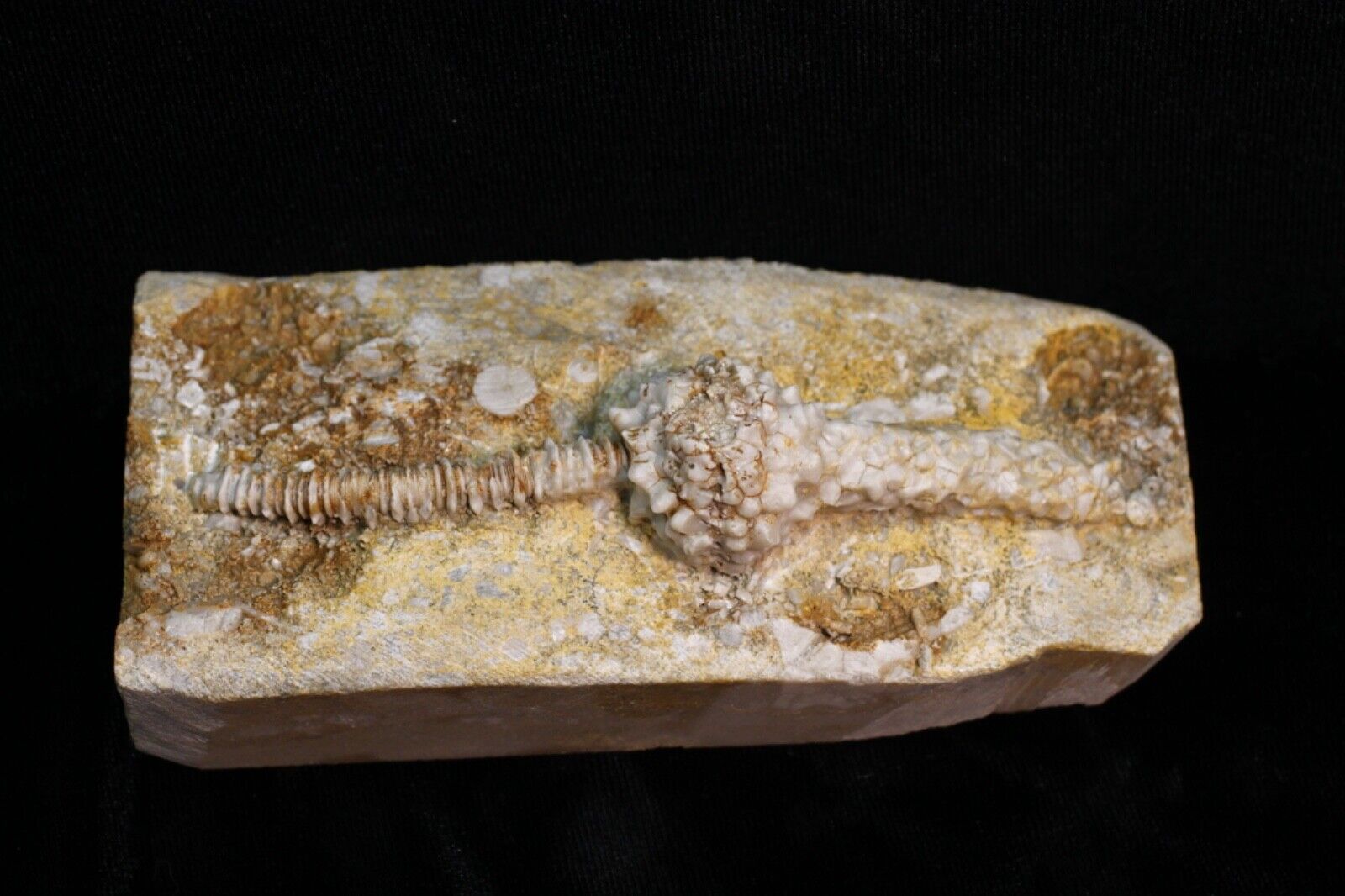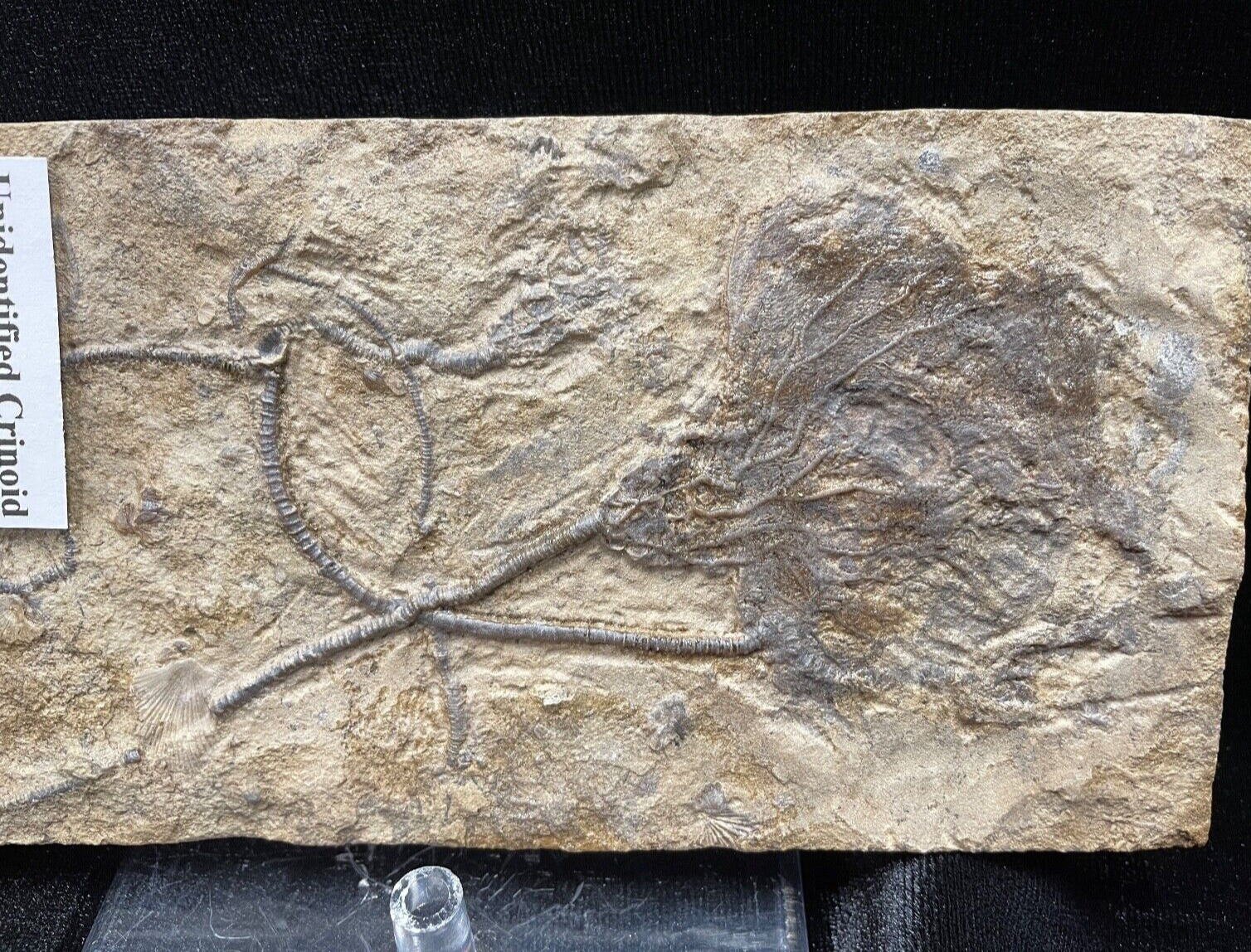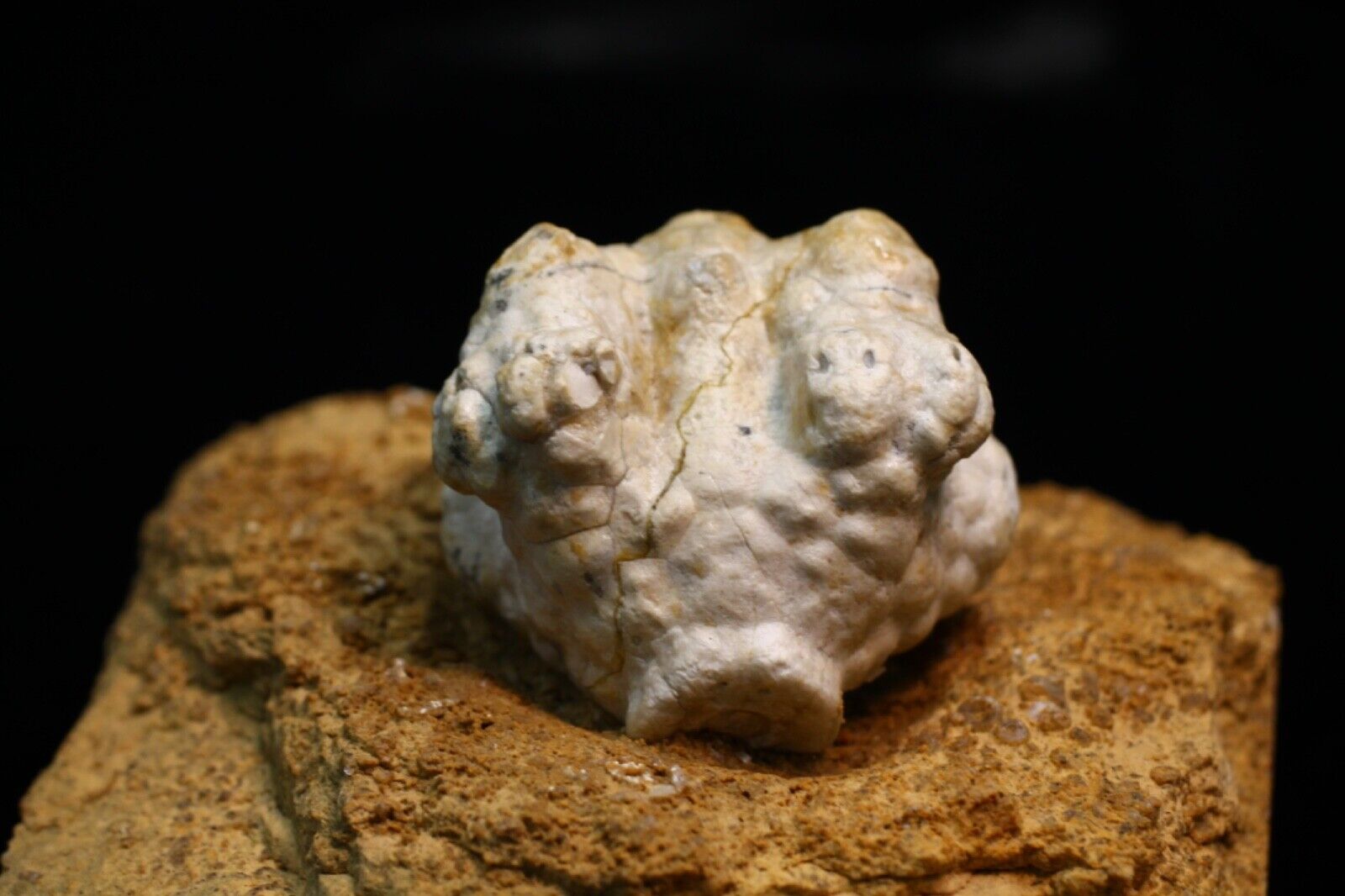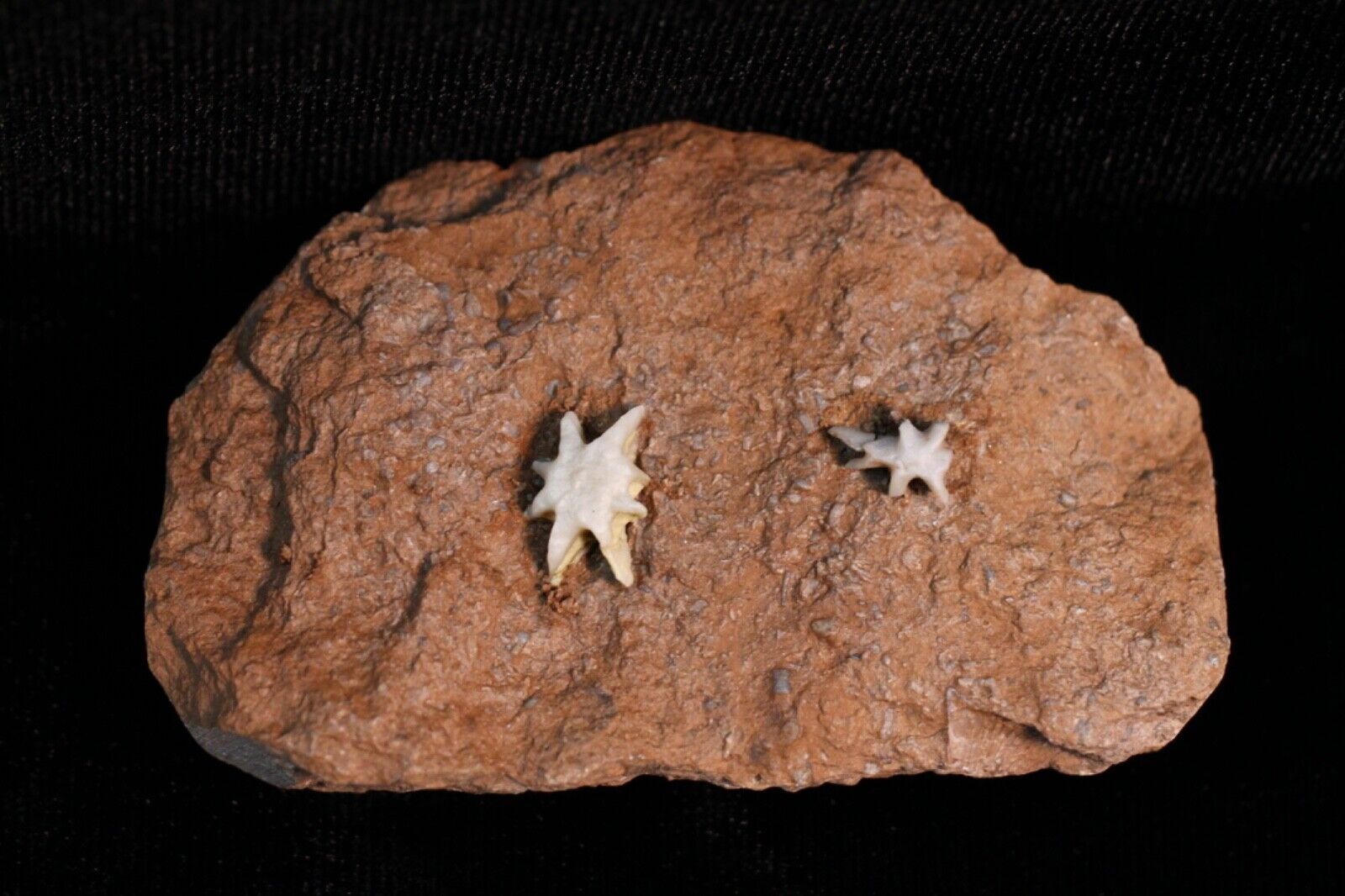-40%
Chomping Fossil Crinoid, Crawfordsville, IN
$ 92.4
- Description
- Size Guide
Description
This Decadocrinus tumidulus reminds me of a crocodile. I guess it’s the way the arms are long thin, like the jaws of a crocodile, and how the pinnules mimic sharply pointed teeth. The crinoid—and not the crocodile—must have been able to comb the water very carefully for particles of food. It would have captured anything of size, say, a shred of a seaweed or algae, or a rag of a vanquished denizen. No telling what all was in those waters. Except the crinoid. It was eating. It was adapting. It was evolving. It survived its journey of millions and millions of years into today, into our world, still a factor, still something to be reckoned with. That could bite. Like a crocodile. This ferocious fossil crinoid is placed up a sold piece of matrix which measures approximately 3 3/4” x 2 1/2” x 1/2” and weighs 4.1 ounces. Free US shipping only.A note about fossils: While there are many fakes and forgeries on the market—and you need to be careful when purchasing fossils—I am confident of my sourcing and preparation. To be clear, nearly all fossils on the market are restored to some degree in preparation. But this kind of preparation is different from faking and/or misrepresenting fossils, which is usually but not always done to deceive or mislead buyers. That is why the skill and judgment of the preparer are so important—for there is a fine line between the restoration and forgery of fossils. That’s why I am not able to discern for YOU where exactly that line is drawn. Speaking for myself, restoration and repair of cracks, wear, dangerously thin plates, and “bite” marks are acceptable so long as they don't change or misrepresent the original fossil find. So, too, are the careful use of pigments and clear non-yellowing sealants which are used to protect and finish the fossil. I have seen hundreds and even thousands of "raw" fossils from the sites represented among my offerings. Some are nearly impeccable, but are dull in appearance until they have been sealed. Others have fragile plates, wear spots, or "bite" marks which, to my way of thinking, the preparer needs to address. And it’s not easy. If they do too much, they risk ruining the fossil, and, if they do not do enough, the fossil doesn't look as nice as it might—which, to my mind, makes the piece less desirable. So before you purchase a fossil from me, please look very closely at the pictures. If you see something you do not like, then please do NOT purchase the fossil. My aim is to offer only the very best fossils—those in the top 5% of all fossils taken—from exciting and exclusive sites. But, in the end, it is YOU who must be pleased. If you are not, please re-read my return policy above. I’m not wanting anyone to feel saddled with something they don’t like.


